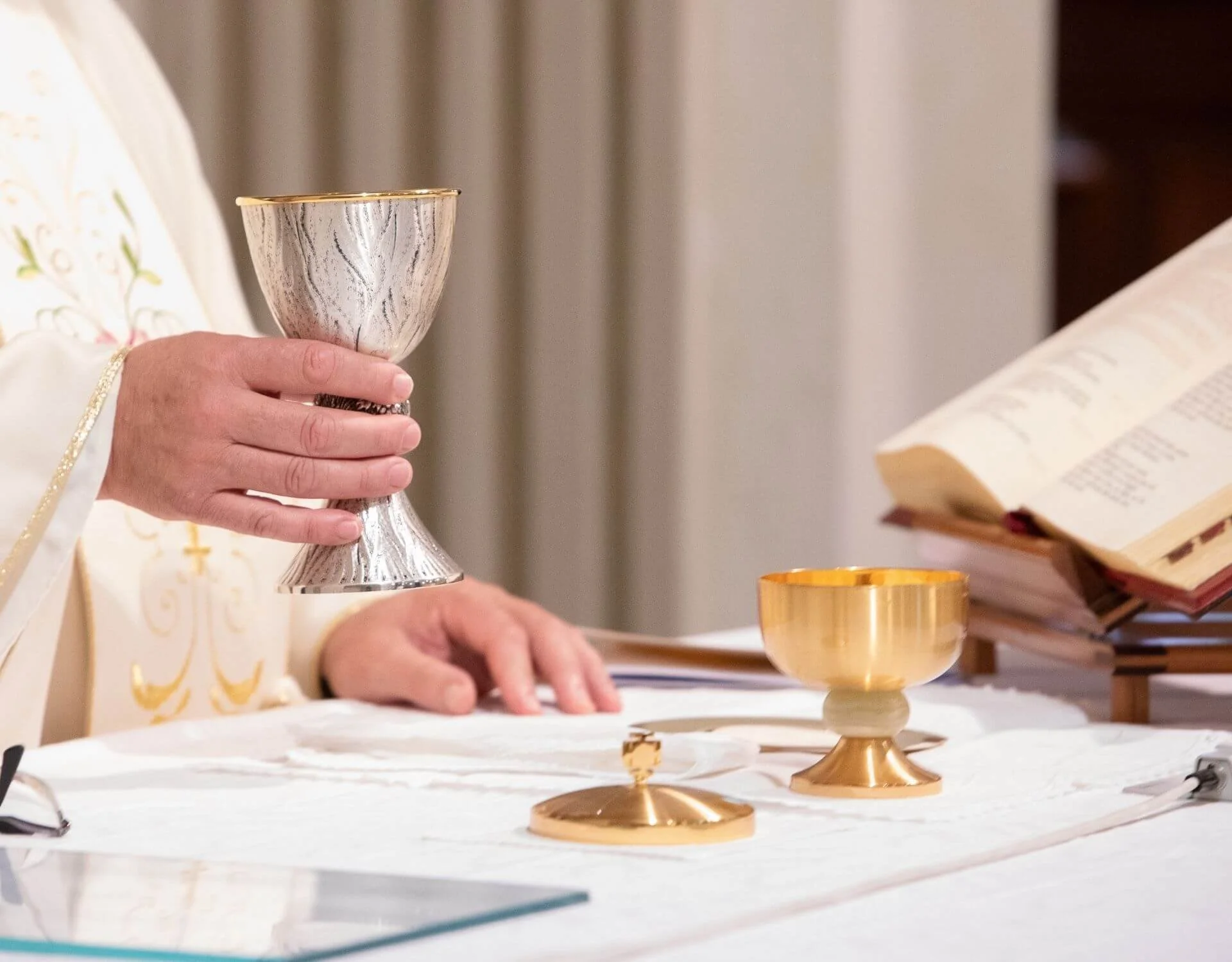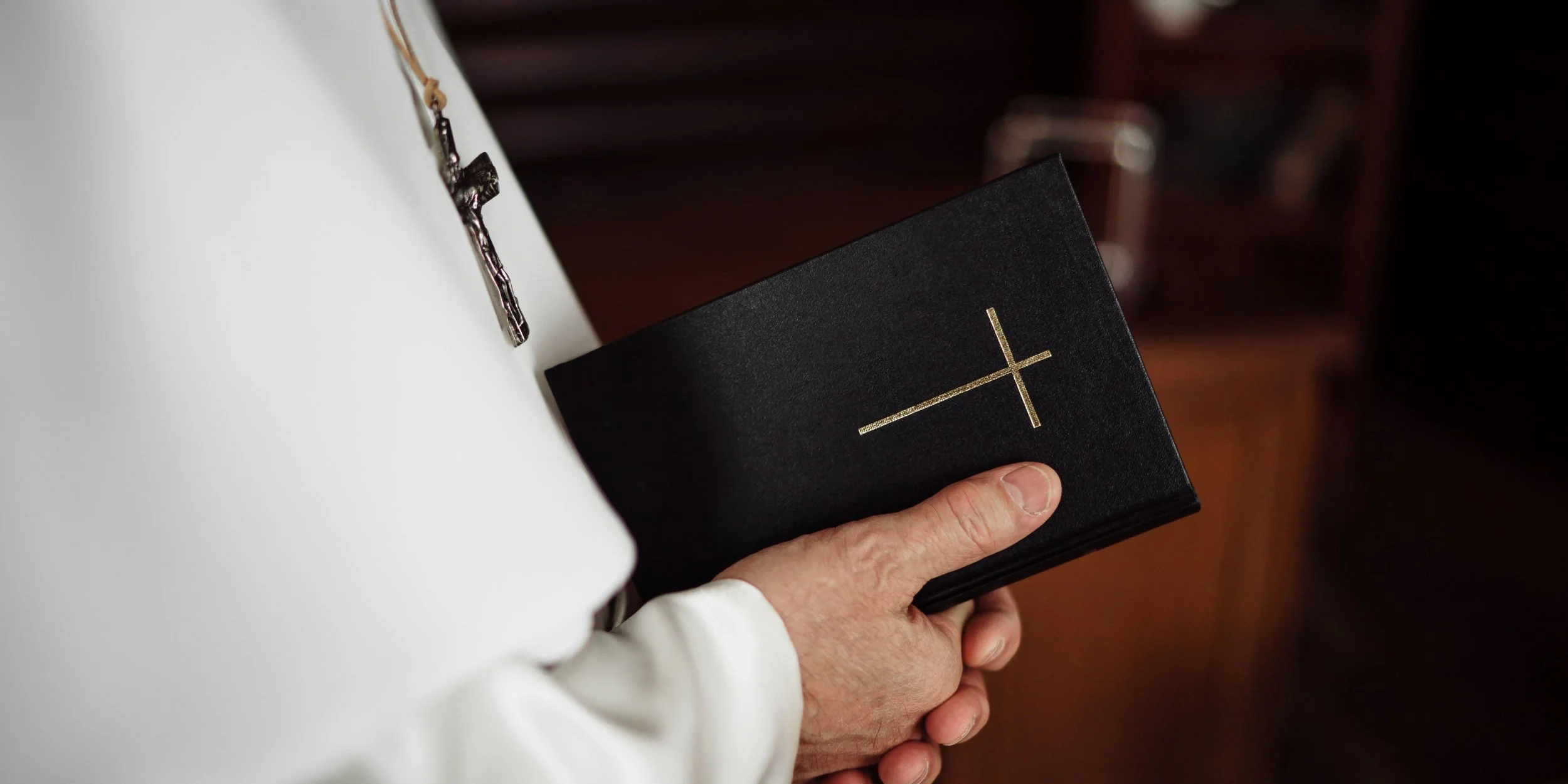Holy Orders
A Vocation of Service
Tending the Flock of God
Holy Orders is the sacrament through which the mission entrusted by Christ to His apostles continues to be exercised in the Church until the end of time. It is a sacrament of service, where a baptized man is configured to Christ by the grace of the Holy Spirit to serve the People of God as a deacon, priest, or bishop.
Those who receive Holy Orders are consecrated in Christ's name to "feed the Church by the word and grace of God." They are not set apart for power or privilege, but for a life of radical self-gift, modeling their lives on Jesus Christ, who came "not to be served, but to serve."
Scriptural Foundation: "So I exhort the elders among you... shepherd the flock of God that is among you, exercising oversight, not under compulsion, but willingly, as God would have you." (1 Peter 5:1-2)
The Church Teaches: "Holy Orders is the sacrament through which the mission entrusted by Christ to his apostles continues to be exercised in the Church until the end of time: thus it is the sacrament of apostolic ministry. It includes three degrees: episcopate, presbyterate, and diaconate." (Catechism of the Catholic Church, 1536)
Tending the Flock of God
Holy Orders is the sacrament through which the mission entrusted by Christ to His apostles continues to be exercised in the Church until the end of time. It is a sacrament of service, where a baptized man is configured to Christ by the grace of the Holy Spirit to serve the People of God as a deacon, priest, or bishop.
Those who receive Holy Orders are consecrated in Christ's name to "feed the Church by the word and grace of God." They are not set apart for power or privilege, but for a life of radical self-gift, modeling their lives on Jesus Christ, who came "not to be served, but to serve."
Scriptural Foundation: "So I exhort the elders among you... shepherd the flock of God that is among you, exercising oversight, not under compulsion, but willingly, as God would have you." (1 Peter 5:1-2)
The Church Teaches: "Holy Orders is the sacrament through which the mission entrusted by Christ to his apostles continues to be exercised in the Church until the end of time: thus it is the sacrament of apostolic ministry. It includes three degrees: episcopate, presbyterate, and diaconate." (Catechism of the Catholic Church, 1536)
Configured to Christ the Head
This sacrament confers an indelible spiritual character, marking the recipient as a servant of Christ and the Church forever. Priests, in a special way, are given the sacred power to act in persona Christi Capitis (in the person of Christ the Head), most profoundly when they celebrate the Eucharist and grant absolution in the Sacrament of Reconciliation.
The Three Degrees of Holy Orders
The Episcopate
Bishops
As direct successors to the apostles, bishops receive the fullness of the Sacrament of Holy Orders. This unique grace makes them the chief shepherds of a diocese, responsible for teaching the faith, sanctifying the faithful through the sacraments, and governing the local Church. It is the bishop who ordains new priests and deacons, ensuring the continuation of the apostolic ministry.
The Presbyterate
Priests
As dedicated co-workers with the bishops, priests are ordained to serve the People of God in a particular community. They are entrusted with preaching the Gospel, shepherding the faithful in a parish, and, most essentially, celebrating the sacraments. Through their hands, Christ becomes present in the Eucharist and offers mercy in the Sacrament of Reconciliation.
The Diaconate
Deacons
Deacons are ordained for a special ministry of service, a role rooted in the Greek word diakonia. They are configured to Christ the Servant and have a unique threefold ministry of Word, Liturgy, and Charity. They proclaim the Gospel at Mass, assist the priest at the altar, baptize, witness marriages, and lead the community in works of charity and justice for the poor and vulnerable.
We encourage our entire parish family to continually pray for an increase in vocations, that holy men will always be there to serve God's people.

Is God Calling You?
Discerning a vocation to the priesthood or diaconate is a journey of prayer and listening. If you feel God may be calling you to serve the Church in this special way:
Pray: Deepen your relationship with Christ through daily prayer, frequent reception of the sacraments, and spending time in Eucharistic Adoration.
Talk: Speak with someone you trust. Our priests are always open to speaking with men who are considering a vocation.
Explore: For more information on the priesthood and diaconate in our area, please reach out using the form on this page.
Is God Calling You?
Discerning a vocation to the priesthood or diaconate is a journey of prayer and listening. If you feel God may be calling you to serve the Church in this special way:
Pray: Deepen your relationship with Christ through daily prayer, frequent reception of the sacraments, and spending time in Eucharistic Adoration.
Talk: Speak with someone you trust. Our pastor is always open to speaking with men who are considering a vocation.
Explore: For more information on the priesthood and diaconate in our area, please visit the Vocations Office for the Archdiocese of [xxx].
Discerning Your Vocation
Discerning God's call is a profound journey of prayer and listening. If you feel a stirring in your heart toward the priesthood or diaconate and would like to speak with someone, we are here to help.
Please use this confidential form to request a conversation with our pastor. This is a space for you to ask questions and receive guidance with no pressure or commitment.
Frequently Asked Questions
-
It means "in the person of Christ." Through the sacrament of Holy Orders, the priest is configured to Christ in such a way that when he performs his sacred duties—especially celebrating the Mass and forgiving sins in Confession—it is Christ Himself who is acting through him (CCC, 1548).
-
No, Holy Orders do not include nuns in the Catholic Church, as the sacrament of Holy Orders can only be conferred on men, not women. Nuns are consecrated religious who take vows of poverty, chastity, and obedience, but they are considered lay people, not ordained clergy. Clergy are men who have received the sacrament of Holy Orders. The relevant reference in the Catechism of the Catholic Church is CCC 1536, which defines Holy Orders and its three degrees: episcopate (bishops), presbyterate (priests), and diaconate (deacons).
-
The Church ordains only baptized men in fidelity to the example of Jesus Christ, who chose only men to be His twelve apostles. The priesthood is a unique participation in the fatherhood of God and the spousal relationship of Christ to the Church, His bride. This teaching is a matter of divine law, not a question of social equality (CCC, 1577).

"Tending the Flock of God," a biblical directive found in 1 Peter 5:2-3, refers to the responsibility of Christian leaders, or "elders," to care for and guide their congregations (the "flock") willingly and with humility, acting as examples rather than being driven by selfish motives.
"Tending the Flock of God," a biblical directive found in 1 Peter 5:2-3, refers to the responsibility of Christian leaders, or "elders," to care for and guide their congregations (the "flock") willingly and with humility, acting as examples rather than being driven by selfish motives.
